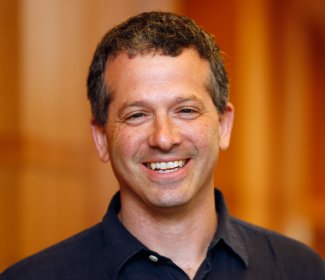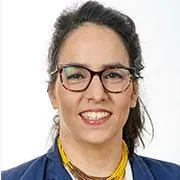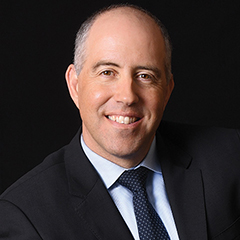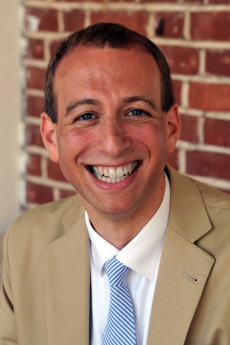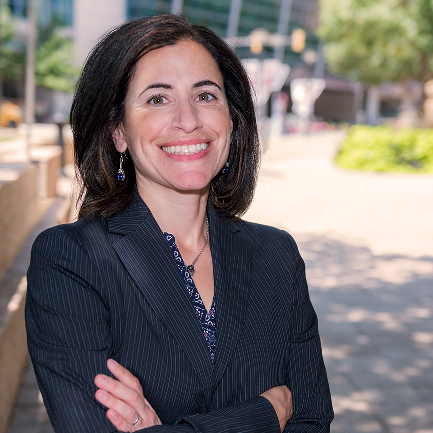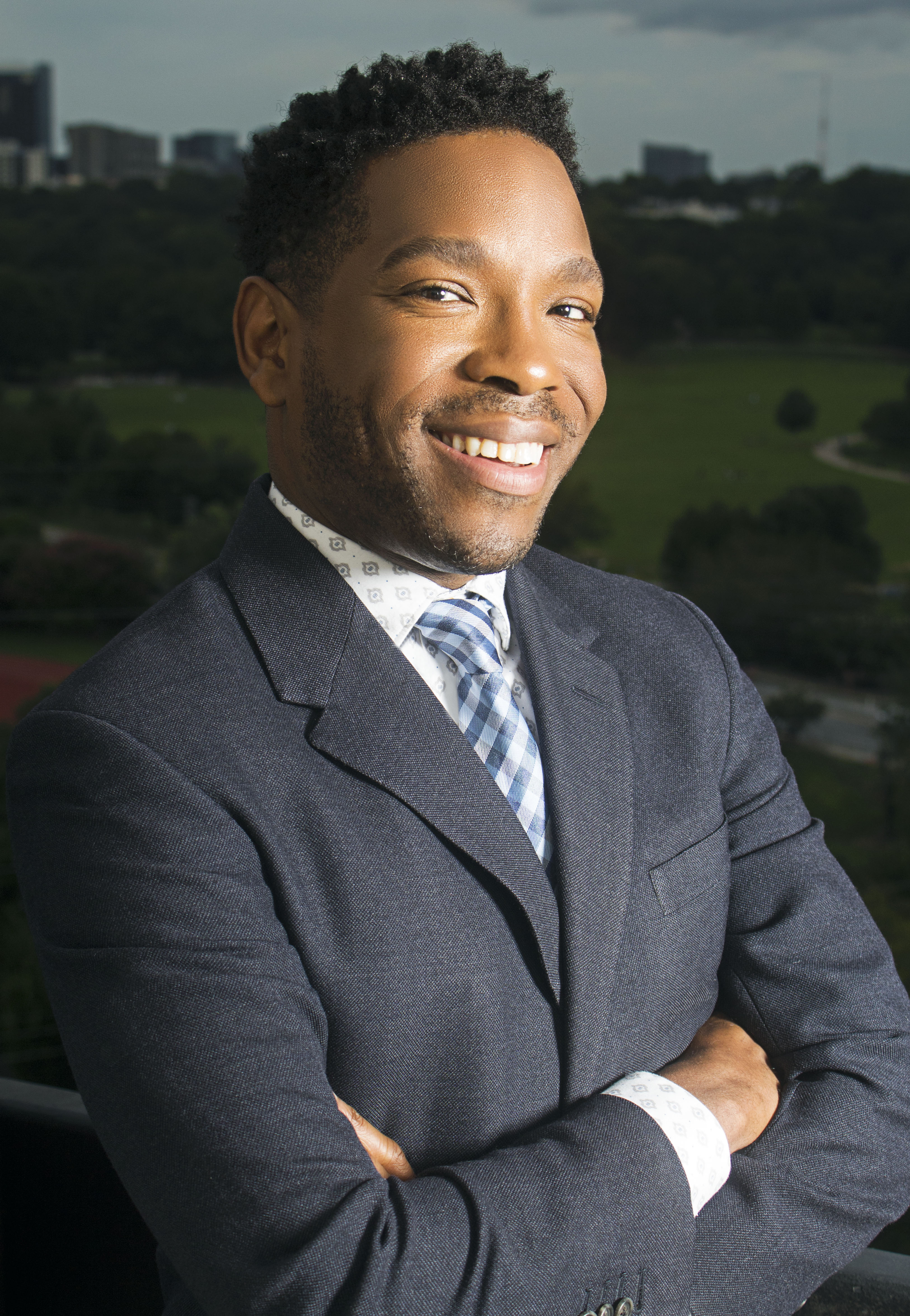TIL Conference: Regionalisms - Shifting Scales Beyond Cities and States
Academic Organizers and presenters:
|
Prof. Yishai Blank |
The Buchmann Faculty of Law, Tel Aviv University |
|---|---|
|
|
Yishai Blank is the Dean of Tel-Aviv University Buchmann Faculty of Law. Yishai’s areas of research and teaching include Local Government Law, Administrative Law, Global Cities, Urban Legal Policy, Law and Secularism, and Legal Theory. Professor Blank obtained his LL.B. and an additional B.A in Philosophy (both magna cum laude) from Tel-Aviv University. He clerked for the Chief Justice of the Israeli Supreme Court, Aharon Barak, and practiced law in the leading law firm I. Gornitzky & Co. Professor Blank continued his studies at Harvard Law School, where he was a Byse Fellowship recipient, and where he received his LL.M. in 1999 and his S.J.D. in 2002. He was a member of the Young Scholars in the Humanities and Social Sciences Forum of the Israeli Academy of Science and Humanities, and he is a three-times recipient of prestigious fellowship from the Israeli Science Foundation (ISF). Prior to him becoming Dean, Yishai was the Director of the Cegla Center for the Interdisciplinary Research of the Law, the Head of the Graduate Committee, and Vice Dean (Academic Affairs). Professor Blank was a visiting professor at Harvard Law School, Cornell Law School, University of Toronto Law School, Queen’s University Law School, Sciences Po Law School (Paris), Brown University, University of Hamburg, and the Oñati International Institute for the Sociology of Law (Spain). Professor Blank’s works have been published in law journals in the United States and in Israel, including Stanford Law Review, Cornell Law Review, North Carolina Law Review, Harvard Journal of International Law, Harvard Civil-Rights Civil-Liberties Law Review, Fordham Urban Law Journal, the Urban Lawyer, Tel-Aviv University Law Review, and Columbia Journal of Transnational Law.
|
Issachar Rosen-Zvi |
The Buchmann Faculty of Law, Tel Aviv University |
|---|---|
|
|
Issachar (Issi) Rosen-Zvi is a Professor of Law and the Vice Dean at Tel Aviv University’s Faculty of Law. Between 2014-2018 he served as the Academic Director of the Elga Cegla Legal Clinics. He obtained his LL.B. (magna cum laude) from Bar-Ilan University, his LL.M. in law and sociology from Tel Aviv University (summa cum laude). He continued his studies at Stanford Law School, where he received his J.S.D. in June, 2002. He clerked for the Honorable Chief Justice Aharon Barak of the Israeli Supreme Court and practiced law at Kirkland & Ellis, LLP in New York. Rosen-Zvi is a four-times recipient of research grants from the Israeli Science Foundation (ISF) and his papers were selected for the Stanford/Yale Junior Faculty Forum and the Harvard/Stanford International Junior Faculty Forum. He was a visiting professor at Cornell Law School, Northwestern Pritzker School of Law, SciencesPo Law School (Paris), Goethe University (Frankfurt), and the Oñati International Institute for the Sociology of Law (Spain). His areas of research and teaching include administrative law, local government law, law and society, law and geography, environmental law, and civil procedure. His works have been published in prestigious law journals in the United States and in Israel, including Stanford Law Review, U. Penn Law Review, Virginia Law Review, UCLA Law Review, North Carolina Law Review, Law & Society Review, Journal of Empirical Legal Studies, and Tel-Aviv University Law Review. |
Richard C. Schragger |
School of Law, University of Virginia |
|---|---|
|
|
Rich Schragger joined the Virginia faculty in 2001 and was named the Perre Bowen Professor in 2013. His scholarship focuses on the intersection of constitutional law and local government law, federalism, urban policy, and the constitutional and economic status of cities. He also writes about law and religion. He has authored articles on the Establishment and Free Exercise clauses, the role of cities in a federal system, local recognition of same-sex marriage, takings law and economic development, and the history of the anti-chain store movement. Schragger has published in the Harvard, Yale, Chicago, Virginia and Michigan law reviews, among others. He teaches property, local government law, urban law and policy, and church and state. Schragger received an M.A. in legal theory from University College London and received his J.D., magna cum laude, from Harvard Law School. He was a supervising editor of the Harvard Law Review. After clerking for Dolores Sloviter, then-chief judge of the U.S. Court of Appeals for the Third Circuit, Schragger joined the Washington, D.C., firm Miller, Cassidy, Larroca & Lewin, where he practiced for two years. Schragger has been a visiting professor at the University of Münster, Tel Aviv University, the University of Chicago School of Law, the New York University School of Law, the Georgetown University Law Center and the Quinnipiac School of Law, and has been the Samuel Rubin Visiting Professor at Columbia Law School. He is a faculty fellow at the Miller Center, a faculty adviser to the Local Solutions Support Center, and a member of the American Law Institute. He is the author of City Power: Urban Governance in a Global Age (Oxford University Press, 2016). |
Participants:
Helmut Aust |
Department of Law, Die Freie Universität Berlin |
|---|---|
|
|
|
|
Nir Barak |
The Department of Politics and Government, Ben Gurion University of the Negev |
|---|---|
|
|
|
|
Ofra Bloch |
The Buchmann Faculty of Law, Tel Aviv University |
|---|---|
|
|
Ofra Bloch is an Assistant Professor at Tel Aviv University, Faculty of Law. Her areas of research and teaching include history and theory of constitutional law, administrative law, antidiscrimination law and education law, with a focus on questions of inequality and political economy. Bloch earned a J.S.D. and LL.M. from Yale Law School, and an LL.M. and LL.B. from Tel Aviv University. She is also a graduate of the Adi Lautman Interdisciplinary Program for Outstanding Students at Tel-Aviv University. Bloch is the recipient of the Alon Scholarship for outstanding junior faculty, Yale University Institution for Social and Policy Studies (ISPS) Fellowship, and the American Society for Legal History Kathryn T. Preyer award. Prior to her graduate studies, Bloch served as a Law Clerk to the Honorable Justice Esther Hayut of the Supreme Court of Israel. Her recent publications include Diversity Gone Wrong: A Historical Inquiry to the Evolving Meaning of Diversity from Bakke to Fisher, 20 University of Pennsylvania Journal of Constitutional Law (2018); The Untold History of Israel’s Affirmative Action for Arab Citizens (1948-1968), Law and History Review (forthcoming). |
|
Nestor M. Davidson |
School of Law, Fordham University |
|---|---|
|
|
Nestor Davidson joined Fordham in 2011 and was named the Albert A. Walsh Professor of Real Estate, Land Use and Property Law in 2017. Professor Davidson is an expert in property, urban law, and affordable housing law and policy, and is the co-author of the casebook Property Law: Rules, Policies and Practices (7th ed. 2017). Professor Davidson founded and serves as the faculty director of the law school’s Urban Law Center and previously served as Associate Dean for Academic Affairs. Professor Davidson practiced with the firm of Latham and Watkins, focusing on commercial real estate and affordable housing, and served as Special Counsel and Principal Deputy General Counsel at the U.S. Department of Housing and Urban Development. Professor Davidson earned his AB from Harvard College and his JD from Columbia Law School. After law school, he clerked for Judge David S. Tatel of the United States Court of Appeals for the District of Columbia Circuit and Justice David H. Souter of the Supreme Court of the United States. |
|
David Fontana |
Law School, George Washington University |
|---|---|
|
|
David Fontana is the Samuel Tyler Research Professor at George Washington University Law School in Washington, D.C. Before coming to GW Law, he clerked on the U.S. Court of Appeals for the Ninth Circuit, went to law school at Yale, and attended graduate school at Oxford. He is the author or co-author of papers on constitutional or comparative constitutional law that have been or will be published by leading scholarly journals in law, including the Harvard Law Review, Yale Law Journal, Columbia Law Review, University of Chicago Law Review, Virginia Law Review, Northwestern University Law Review, Georgetown Law Journal, Texas Law Review, UCLA Law Review and the Southern California Law Review, among others. Professor Fontana also writes about constitutional issues for a number of general interest publications, including, most frequently, Slate and The New Republic. He regularly consults with Congress, presidential campaigns, and foreign constitution-drafters on issues of constitutional law. |
|
Sheila R. Foster |
Law, Georgetown University |
|---|---|
|
|
Sheila R. Foster is the Scott K. Ginsburg Professor of Urban Law and Policy at Georgetown. She holds a joint appointment with the Georgetown Law School and the McCourt Public Policy School. Professor Foster writes in the areas of property, local government, and environmental/climate justice. Her scholarship has appeared in law journals published by Yale, Berkeley, Harvard, Notre Dame and in books published by NYU Press, MIT press, Cambridge University Press, and Oxford University Press. At Georgetown, Foster is the faculty director of the Georgetown Project on State and Local Government Policy and Law (SALPAL) and co-founder of the State and Local Government Blog (SLoGLaw Blog). Outside of Georgetown, Foster has been involved on many levels with local government law and policy. She was the chair of the advisory committee of the Global Parliament of Mayors from 2017-2020 and currently is a member of the New York City Mayor's Panel on Climate Change where she co-chairs the workgroup on equity. Foster also co-directs LabGov, an international applied research project that has pioneered a new model of urban governance and a path toward more equitable management of a city's infrastructure and services. This approach is set forth in her forthcoming MIT Press book, Co-Cities: Innovative Transitions Toward Just and Self-Sustaining Communities (with Christian Iaione).
|
|
Clayton Gillette |
NYU Law |
|---|---|
|
|
Clayton Gillette’s teaching and scholarship concentrate on contracts, commercial law, and local government law. His research concerns issues as varied as local redistribution, contract design, long-term contracts, the political economy of international sales law, standard form contracts, municipal bankruptcy, and relations between localities and their neighbors. Professor Gillette also served as Director of the Marron Institute of Urban Management at NYU. He has recently supervised students working on governance structures that increase fiscal stability for the Office of the Emergency Manager of the City of Detroit, and has consulted in litigation and arbitrations on subjects ranging from the interpretation of sophisticated financial contracts to defaults on municipal bonds. Before joining the NYU School of Law faculty in 2000, he was the Perre Bowen Professor of Law at the University of Virginia School of Law. He earned his JD from the University of Michigan and a BA from Amherst College. After law school, he clerked for Judge J. Edward Lumbard of the US Court of Appeals. |
Roderick M. Hills Jr. |
NYU Law |
|---|---|
|
|
Roderick Hills teaches and writes in public law areas with a focus on the law governing division of powers between central and subcentral governments. These areas include constitutional law, local government law, land use regulation, jurisdiction and conflicts of law, and education law. His publications have appeared, among other places, in the Harvard Law Review, Pennsylvania Law Review, Michigan Law Review, Stanford Law Review, the University of Chicago Law Review, and the Supreme Court Law Review. Hills has been a cooperating counsel with the American Civil Liberties Union of Michigan and also files amicus briefs in cases on issues relevant to the autonomy of state and local governments and the protection of their powers from preemption. Hills holds bachelor’s and law degrees from Yale University. He served as a law clerk for Judge Patrick Higginbotham of the US Court of Appeals for the Fifth Circuit and previously taught at the University of Michigan Law School. He is a member of the state bar of New York and the US Supreme Court bar. |
| Christian Iaione |
Luiss Guido Carli Law Department |
|---|---|
|
|
Christian Iaione is professor of urban law and policy, law & policy of innovation & sustainability at Luiss Guido Carli Law Department where he is also deputy director of the research center BILL-Blockchain, artificial Intelligence and digital innovation Law Lab, coordinator of the innovation area of the Luiss School of Law, faculty co-director of the graduate course in Law, Digital Innovation and Sustainability, and faculty co-director of LabGov – LABoratory for the GOVernance of the City as a Commons (a scientific partnership between Luiss University and Georgetown University). He is also affiliated fellow of the Urban Law Center at Fordham University. He is Luiss scientific responsible for three Horizon 2020 projects (Open Heritage, EUARENAS and ENGAGE.EU R&I) and two national grants on the creation of energy communities and houses of emerging technologies. He is co-lead expert of the URBACT-UIA CO4CITIES project and member of the Urban Partnership on Innovative and Responsible Procurement within the Urban Agenda for the EU. He coordinates the City Science Office of the City of Reggio Emilia and represents it within the European Commission City Science Initiative. Christian has published several articles in the field of public and administrative law and, in particular, land use, public goods and the commons, public services and public contracts, urban law and local government. He has authored two books on In house publicly-owned companies. Contribution to the principle of self-organization and self-production of local governments (Jovene, 2007 – 2012, II ed.) and The regulation of urban mobility (Jovene, 2008) and has co-authored Italy of the Commons (Carocci, 2012) and The Age of Sharing (Carocci, 2015), The Co-City (Jovene, 2018), Housing for all (Mulino, 2019), Co-Cities. Innovative Transitions Towards Toward Just and Self-Sustaining Communities. Iaione’s current research focus is on the governance of the commons, in particular urban commons and knowledge commons, sharing economy, collaborative economy, social innovation, social housing, innovation procurement, AI and public law, public-commons and public-private-commons partnerships, tech and climate justice. |
| Fatma Marouf |
Texas A&M University School of Law |
|---|---|
|
|
My scholarship explores the intersections of immigration law, international human rights law, and constitutional law. Some of my recent projects have examined the rights of mentally incompetent individuals in removal proceedings, the exclusion of DREAMERS from the Affordable Care Act, and community-based alternatives to immigration detention. I also engage in empirical research to expand our understanding of judicial decision-making and implicit bias in immigration appeals. |
|
Myron Orfield |
School of Law, University of Minnesota |
|---|---|
|
|
Professor Myron Orfield is the Director of the Institute on Metropolitan Opportunity and teaches constitutional law. He has written three books and dozens of articles and book chapters on local government law, spatial inequality, fair housing, school desegregation, charter schools, state and local taxation and finance, and land use law. The syndicated columnist Neal Peirce called him "the most influential demographer in America's burgeoning regional movement." Orfield's research has led to legislative and judicial reforms at the federal level and state level reform in Minnesota, Illinois, Michigan, California, New Jersey, Connecticut, Massachusetts, Washington, Oregon, and Maryland. Professor Orfield has been a litigator in a large law firm, a civil rights lawyer, and an assistant attorney general of Minnesota, representing Minnesota in appellate courts, including the United States Supreme Court. He has been a senior fellow at the Brookings Institution in Washington and led both a national non-profit organization and a private research firm with clients all over the United States. Orfield was elected to both the Minnesota House of Representatives and Senate, where he was the architect of a series of important legislative changes in land use, fair housing, and school and local government aid programs. Recently, Orfield served on the National Commission on Fair Housing and Equal Opportunity, as an academic advisor to the Congressional Black Caucus, an advisor to President Obama's transition team for urban policy, to the White House Office of Urban Affairs, and as special consultant to the HUD's Office for Fair Housing and Equal Opportunity. At FHEO, Professor Orfield assisted in the development of the Fair Housing Act's Discriminatory Effects Standard (the "disparate impact rule") (78 Fed. Reg. 11460) and the Affirmatively Furthering Fair Housing Rule (80 Fed.Reg. 42272). Professor Orfield graduated, summa cum laude, from the University of Minnesota, was a graduate student at Princeton University, and has a J.D. from the University of Chicago, where received the Patino Fellowship, served on the University of Chicago Law Review and was a finalist in the Hinton Moot Court competition. Following law school, he clerked for the United States Court of Appeals for the 8th Circuit and then returned to the University of Chicago Law School as a Research Associate and Bradley Fellow at the Center for Studies in Criminal Justice. His early articles on the impact of the exclusionary rule on police behavior continue to be widely cited. |
|
Fred Smith Jr. |
Emory Law School |
|---|---|
|
|
Fred Smith Jr. is a Professor of Law at Emory University. He is a scholar of the federal judiciary, constitutional law, and local government. In 2019 and 2022, he was named the law school’s Outstanding Professor of the Year. Smith clerked for Judge Myron Thompson of the Middle District of Alabama; Judge Barrington D. Parker Jr. of the United States Court of Appeals for the Second Circuit; and Justice Sonia Sotomayor of the United States Supreme Court. Prior to teaching, he also worked for Bondurant, Mixson & Elmore LLP in Atlanta. Smith's research focuses on accountability, federal jurisdiction, and state sovereignty. His work has appeared, or will appear, in Columbia Law Review, Harvard Law Review, Michigan Law Review, New York University Law Review, Notre Dame Law Review, Stanford Law Review, Vanderbilt Law Review, among other academic journals. Representative works include: “Policing Mass Incarceration,” 135 Harv. L. Rev. 1853 (2022) (forthcoming); “On Time, (In)equality, and Death,” 120 Mich. L. Rev. 195 (2021); “The Constitution After Death,” 121 Colum. L. Rev. 1471 (2020); “Abstention in the Time of Ferguson,” 131 Harv. L. Rev. 2283 (2018); "Undemocratic Restraint," 69 Vand. L. Rev. 845 (2017); and "Local Sovereign Immunity," 116 Colum. L. Rev. 409 (2016). He has given lectures on related topics across the United States and internationally, including in Istanbul, Shanghai, and Warsaw. He also has been interviewed as an expert by major media outlets, including CBS News, the New York Times, the Washington Post, the Atlanta Journal-Constitution, Time Magazine, Esquire Magazine, Court TV, and National Public Radio. In a range of volunteer capacities, Smith promotes equity and social justice. He serves on the board of Invest Atlanta, which serves as the economic and community development authority of City of Atlanta. He also serves the national board of Lambda Legal; the national board of Civil Rights Corps; and the LGBT Advisory Board of Historic Atlanta. He served as an inaugural member of Atlanta’s Mayoral LGBTQ Advisory Board. He also served as an inaugural advisory board member for the Harvard Debate Council Diversity Project, which annually trains black Atlanta youth in critical thinking and public speaking. |
|
Manal Totry - Jubran |
Faculty of Law, Bar Ilan University |
|---|---|
|
|
Manal is senior lecturer (Associate Professor) at the Law faculty - Bar Ilan University. She was a Post Doctorial Fellow at the Faculty of Law, the Hebrew University. She received her Ph.d. from the Faculty of Law, University of Tel- Aviv. Her dissertation under the supervision of Prof. Yishai Blank, is titled “In the Name of the Diversity Discourse: The Role of the Law in Designing Urban Spatial Segregation on the Basis of Nationally”. She received her LL.M. (Magna cum Laude) from the Faculty of Law, University of Tel- Aviv. Title of Master’s thesis: “Public Participation in the Israeli Planning Law: Wadi Nisnas as a Test Case”. In 2018 she was selected by “Calcalist” newspaper and “Bank Hapoalim” as one of ten Young Promising Arab leaders in the Arab Society. In 2019 she was awarded the “Gorni Prize”, by the Israeli Association of Public Law young researchers for Excellent young researcher in public Law. In 2015 she was awarded the Ma’of scholarship for outstanding Arab students, The Council for Higher Education. In 2019, she received a three years research grant (27,000$) on “Conceptualizing Environmental Justice in the Israeli Legal and Regulative System: Empirical and Theoretical Perspectives”, funded by the Israel Science Foundation (ISF). In 2017, she received a research grant (35,000$) on Social Rights in Israel: Distributing Burdens between the state and the Local Government in Supplying Welfare Services and its Effect on the Creation of Social and Economic Gaps between Local Authorities funded by the National Insurance Institute of Israel; a research grant (35,000$) on “Examining Legal and Spatial Aspects Rothschild Foundation Mode of Work” funded by Rothschild Foundation; a research grant (1000$) on “Minority Judge, Judge of Minorities: Salim Joubran” funded by the Center for Jewish and Democratic Law. In 2016 she received a research grant on “The Legal Regulation of Acquisition Groups in Israel”, funded by the Gazit- Globe Real Estate Institution. She attended several local and international conferences and academic workshops. |
Commentators:
Ori Aronson |
Faculty of Law, Bar Ilan University |
|---|---|
|
|
Ori Aronson is a senior lecturer (associate professor) of law, and deputy director of the Manomadin Center for Jewish and Democratic Law. He received his LLB (2004, summa cum laude) from the Hebrew University of Jerusalem, and his LLM (2006) and SJD (2010) from Harvard Law School. Ori served as clerk and legal assistant to the Chief Justice of the Israel Supreme Court, Aharon Barak, and as law clerk to Second Circuit U.S. Court of Appeals Judge, Jon Newman. He joined the Bar-Ilan Law Faculty in 2010, and teaches there the basic course in civil procedure as well as courses on courts, constitutional law, and constitutional theory. Between 2014-2016 he served as visiting scholar and professor at UC Berkeley School of Law. His research concerns the institutional aspects of adjudication, on the procedural, systemic, and constitutional levels. He has worked and published on the distribution of power among court units, judicial review in higher and lower courts, judicial discretion, and institutional analysis of diffuse legal and normative systems. In the Center for Jewish and Democratic Law, Ori has been working on the development of new modes for research, policymaking, and education in multicultural societies, which are based on the interaction of multiple sources of information and value. Ori was raised in Tel Aviv where he currently lives with his wife, Dr. Hila Shamir, and their two sons, Ivri and Hillel. |
|
Itai Beeri |
School of Political Sciences, University of Haifa |
|---|---|
|
|
Prof. Itai Beeri is an Associate Professor of Local Government, Head of the Division of Public Administration & Policy, School of Political Sciences, at the University of Haifa. With major expertise in public administration & policy, his main research focus lies in local governance, local democracy, central–local relations, spatial inequality and regionalism. He has had articles published in several journals, including Journal of Public Administration Research and Theory, Public Administration Review, Policy Sciences, Public Management Review, and Environment and Planning C: Politics and Space, and he holds several public consultant positions. |
|
Tomer Broude |
Faculty of Law, The Hebrew University of Jerusalem |
|---|---|
|
|
Professor Tomer Broude is the Bessie and Michael Greenblatt QC Chair in Public and International Law at the Hebrew University of Jerusalem Faculty of Law and Department of International Relations, where he has served as Academic Director of the Minerva Center for Human Rights and Vice-Dean of the Faculty of Law. His Doctoral Degree is from the University of Toronto Faculty of Law. He specializes in public international law and international economic law, particularly international trade and investment, human rights, dispute settlement, development and cultural diversity, and the behavioral economics of international law. Broude is the author and editor of several books. His articles have appeared in journals such as International Organization, the European Journal of International Law, University of Pennsylvania Law Review, Leiden Journal of International Law, Vanderbilt Law Review, Virginia Journal of International Law, Journal of World Trade, World Trade Review, Journal of International Economic Law, Columbia Journal of Transnational Law, Journal of World Intellectual Property and Law and Contemporary Problems. He is an Editor of the Journal of International Dispute Settlement and of the Cambridge University Press International Economic and Trade Law book series.
|
|
Avihay Dorfman |
The Buchmann Faculty of Law, Tel Aviv University |
|---|---|
|
|
Avihay Dorfman is a law professor at Tel Aviv University, Buchmann Faculty of Law. His research interests include private law theory, torts and property as well as privatization and political theory. |
|
Eran Feitelson |
The Department of Geography, The Hebrew University of Jerusalem |
|---|---|
|
|
|
|
Ravit Hananel |
Faculty of Social Sciences, Tel Aviv University |
|---|---|
|
|
|
|
Amnon Lehavi |
Harry Radzyner Law School, Reichman University |
|---|---|
|
|
Prof. Amnon Lehavi (J.S.D, Yale) is the Atara Kaufman Professor at the Harry Radzyner Law School and former Dean of the School (2016-2021). He serves as academic director of the Gazit-Globe Real Estate Institute at Reichman University. Prof. Lehavi also served as Co-President of the Law Schools Global League (2018-2021). He is a partner in the UNIDROIT Convention Academic Project (UCAP), which deals with the 1995 UNIDROIT Convention on Stolen or Illegally Exported Cultural Objects. |
Ronit Levine Schnur |
Harry Radzyner Law School, Reichman University |
|---|---|
|
|
Dr. Ronit Levine-Schnur is a senior lecturer at the Radzyner Law School, and a research associate at the Gazit-Globe Institute for Real Estate at IDC Herzliya. She is a lawyer, an urban planner, and a property and land use law expert. Dr. Levine-Schnur is mostly interested in studying and measuring the effects of regulatory and other legal mechanisms on the socio-spatial distribution of social and economic burdens and benefits and on the effects of social and economic factors on decision-making processes. Her current research project focuses on the effects of expropriations of private property and land use reforms on housing prices. Her research appeared in journals such as Journal of Legal Studies, Law and Social Inquiry, and the Oxford Journal of Legal Studies. |
| Avital Margalit |
School of Law, Sapir College |
|---|---|
|
|
Avital Margalit is a senior lecturer at the School of Law, Sapir College. She is a graduate of Tel Aviv University in Law (LL.B.) and in Sociology & Psychology (B.A.), and a graduate of Boalt Hall School of law, University of California at Berkeley (LL.M., J.S.D.). Her teaching and research focuses on social and cultural aspects of property relationships (e.g. housing, urban renewal, cultural property and commons), sports law, and on the legal history of the Kibbutz. She is the academic supervisor of the Sapir law school's public housing legal aid clinic. She is one of the founders and a board member of the Israeli Association for Distributive Justice. |
| Talia Margalit |
David Azrieli School of Architecture, Tel Aviv University |
|---|---|
|
|
Talia Margalit - Associate Professor and the head of the Master Degree Program at the David Azrieli School of Architecture in Tel Aviv University. Her research focuses on urban planning, specifically on planning communications, urban citizenship struggles, and public-private projects. She completed a research on planning objections and justifications, and is now conducting a wide-angel research on Israeli planning in the media, both funded by the Israeli Science Foundation. She authored several book chapters and published in the journals Urban Studies, Environment and Planning A, Cities, Planning Theory and Practice, Journal of Urban and Regional Research, Land Use Policy, Geoforum, among others. She and her students founded 'Me'irim'- an Israeli on-line NGO for planning democracy and communication. |
| Guy Mundlak |
The Buchmann Faculty of Law, Tel Aviv University |
|---|---|
|
|
Guy Mundlak’s appointment is shared with the Department of Labor Studies in the Faculty of Social Sciences (Chair). His research deals with the impact of law on the labor market and the welfare state. More particularly his works centers on the following themes: The relationship between labor law and industrial relations; The internalization of employment standards in economic enterprises and the role of human resource professionals in this process; Constitutional social rights in general, and on the rights to social security and work in particular; The effects of globalization on labor markets, the efficacy of international instruments in responding to the regulatory deficit, looking at both the movement of capital and labor. |
|
Yaniv Roznai |
Harry Radzyner Law School, Reichman University |
|---|---|
|
|
Yaniv Roznai is an Associate Professor at the Harry Radzyner Law School, Interdisciplinary Center (IDC) Herzliya. He holds a PhD and LL.M (Distinction) from The London School of Economics (LSE), and LLB and BA degrees (Magna cum Laude) in Law and Government from the IDC. In 2015-2016, Yaniv was a Post-Doc Fellow at the Minerva Center for the Rule of Law under Extreme Conditions, University of Haifa and at the Hauser Global Law School, New York University (NYU). In 2013, he was a visiting researcher at the Program in Law and Public Affair (LAPA), Princeton University. He was a Visiting Professor at the University of Milan in Italy, Mae Fah Luang University in Thailand, University of the Basque Country in Spain, Koç University in Turkey and Emory University in the United States. |
|
Shai Stern |
Faculty of Law, Bar Ilan University |
|---|---|
|
|
|




